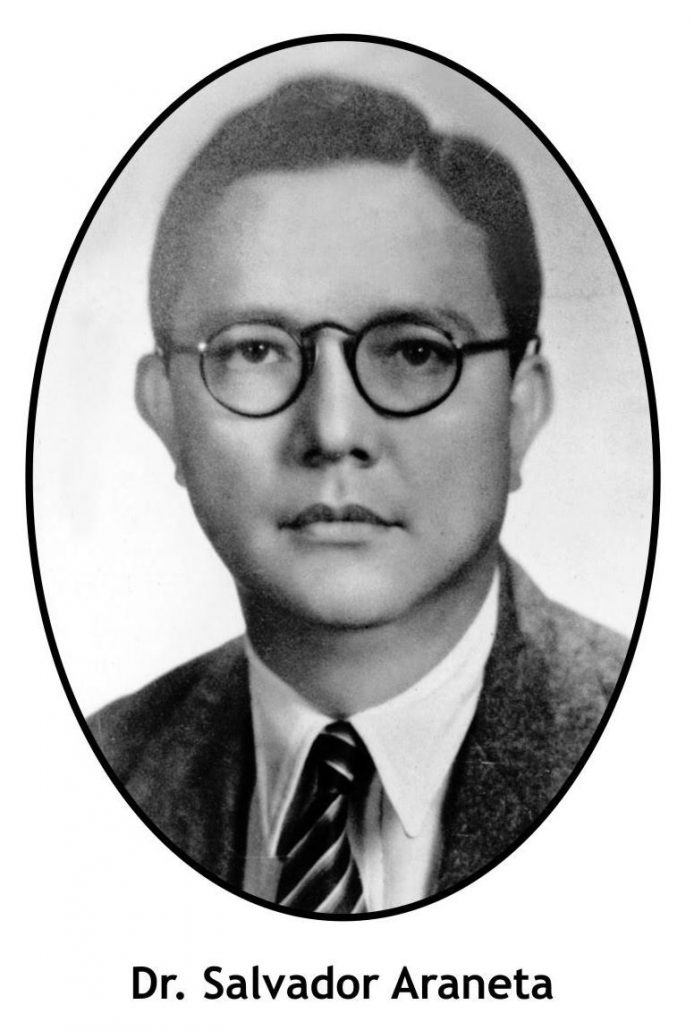 IN EXPLAINING his stand, Araneta made it clear that we should be permitted to organize a Commonwealth Government immediately, along the lines of the HHC (Hare-Hawes-Cutting) Bill and that during the Commonwealth period, we should have free trade without prejudice to a quota system for the American market and also, we should be treated equally, just like the other American territories.
IN EXPLAINING his stand, Araneta made it clear that we should be permitted to organize a Commonwealth Government immediately, along the lines of the HHC (Hare-Hawes-Cutting) Bill and that during the Commonwealth period, we should have free trade without prejudice to a quota system for the American market and also, we should be treated equally, just like the other American territories.
We should be given the right to declare independence without being given any time frame when we could exercise this right. Furthermore, U.S. presence through the military and naval bases should be negotiated in a form of a treaty with certain reservations for future negotiations, which was not an uncommon or unusual practice for treaties.
It was High Commissioner Paul V. McNutt who first proposed a serious reexamination of independence, which called for the revision of the insular tariff so it would benefit both the United States and the Philippines. It was for this that Araneta founded the Philippine Civic League together with congressmen Narcisco Ramos, Jose Romero, Dominador Tan, and Prospero Sanidad, and also businessman Joseph McMicking, and educator Mariano de los Santos.
For a bit of background, President Quezon rejected outright the HHC Law. Under this deal, the American bases would remain even after independence, the only difference was under the Tyding-McDuffie Act, the bases would be dismantled after independence.
Araneta appeared at the hearings in Washington, before the Senate Committee on Territories and Insular Affairs. He clarified which bill was being discussed.
Araneta explained that the Tydings-Kocialkowski Bill was identical to Senate Bill S. 1028 and House Bill H. R. 3330 which was commonly referred to as the Sayre Bill. Sayre was the Assistant Secretary of State of the United States.
In the book of Frank Hindman Golay, “Face of Empire”, Golay recounted that during the hearing before the United States Senate Committee on Territorial and Insular Affairs, Senator Millard Tydings called the Filipinos an “ungrateful lot.” No less than President Quezon had to send a quick apology to Tydings on the impression given by Araneta.
As one of the witnesses during the Senate hearing, Araneta was castigated by Tydings without mentioning his name, simply calling him “a witness” and ordering him to stop saying that the avowed purpose of the bill (Tydings-Kocialkowski Bill) was to gradually liquidate major Philippine industries.
In one of his arguments, Araneta insisted that production could not be promoted by destroying existing trade. Because of the high rate of taxes being proposed for the sugar and coconut exports to America, Araneta further argued that even if the high cost of production in the country were reduced, we would still not be able to compete with Java. Hence, the Philippines would have to revert to producing rice only and its citizens would have a lower standard of living.
More importantly, the bill would promote Japanese domination of the Orient. During the hearing, Araneta spoke up to say that this bill should cover only the Commonwealth period and further negotiations should be concluded after we are granted our independence.
Furthermore, Araneta asked for an economic transition to attain a more balanced economy instead of America imposing full duties right after independence. During the said period, the Philippines should be granted tariff and monetary autonomy. Araneta asked that the existing free trade be continued for the next 15 years; but from time to time, the Americans could impose on us import quotas not yet listed in the existing quota list.
In 1937, the young writer and future National Artist for Literature NVM Gonzalez featured Araneta in his article “Law From an Ivory Tower.” Araneta had been chosen that year as the Philippines’ Most Outstanding Young Man in the Learned Profession.
Gonzalez noted that “when Araneta spoke, even Washington listened.”
Gonzalez further added that Araneta was chosen because the young lawyer was someone of value to society.
Gonzalez wrote, “Whereas Don Gregorio, Araneta’s father, combined the practice of law with service to the nation by filling high government posts with Filipinos, his son Salvador practiced law from an ivory tower from which he could view the goings on in the nation and keep a keen, critical and unbiased eye. The elder Araneta was among the most outstanding Filipinos in his generation who helped America realize the Filipino’s dream of autonomous government. Meanwhile, Salvador was among the most constructive if not the most militant fiscalizer of the Filipinos’ long planned program for economic and political independence.” (To be continued/PN)

